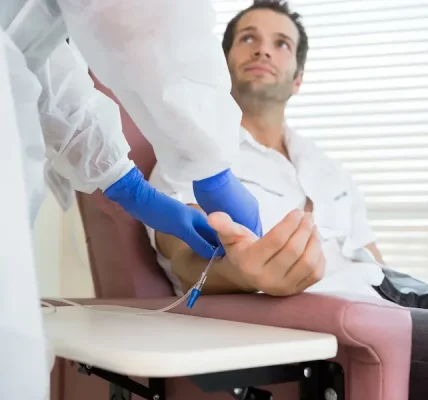In today’s healthcare landscape, addressing complex medical needs requires innovative solutions that prioritize both effective treatment and accessibility. Among the most significant challenges are complex wound care and the need for quick medical access. With advancements in technology, treatment protocols, and healthcare facilities, patients now have more options for effective care. This article explores modern healthcare solutions, focusing on diabetic wound treatment, medical walk-in centers, and other essential healthcare innovations.
Diabetic Wound Treatment: A Specialized Approach
Diabetic wound treatment is crucial for individuals suffering from diabetes, as these patients often experience poor circulation and nerve damage, which can lead to slow-healing wounds. Effective diabetic wound care requires a specialized approach to prevent infections and promote healing. Modern treatments include advanced dressings, antimicrobial agents, and bioengineered skin substitutes. Additionally, techniques like hyperbaric oxygen therapy have been shown to enhance tissue healing, providing hope for individuals with chronic diabetic ulcers. By addressing both the underlying cause and the wound itself, diabetic wound treatment helps improve outcomes and quality of life for patients.
Medical Walk-In Center: Immediate Care at Your Fingertips
Medical Walk-In Centers have emerged as a vital solution for those in need of immediate care but unable to wait for an appointment or visit an emergency room. These centers offer a wide range of services, from treating minor injuries and infections to providing vaccinations and routine health check-ups. By offering extended hours and no appointment necessary, a Medical Walk-In Center becomes an accessible option for patients who need quick and effective medical attention. This convenience, combined with affordable care, makes medical walk-in centers an essential part of modern healthcare.
Telemedicine: Remote Consultations for Faster Access
Another significant advancement in modern healthcare is the rise of telemedicine. Telemedicine allows patients to consult with healthcare professionals remotely, reducing the need for in-person visits. This service is especially valuable for patients with mobility issues, those in rural areas, or individuals seeking quick advice without the wait. Through video calls, phone consultations, or secure messaging, telemedicine ensures that patients receive timely care. In addition to routine consultations, telemedicine has been particularly effective in managing chronic conditions, including diabetes, where regular monitoring and follow-up are necessary.
Wound Care Clinics: Specialized Centers for Comprehensive Treatment

Wound care clinics have become specialized centers where patients with complex or non-healing wounds receive dedicated care. These clinics are equipped with the latest technology and staffed by healthcare professionals with expertise in managing various types of wounds, including pressure ulcers, burns, and diabetic foot ulcers. Treatments available in wound care clinics often include debridement (removal of dead tissue), advanced dressings, and treatments like negative pressure wound therapy (NPWT). By focusing on wound healing and offering tailored treatment plans, these clinics help patients recover faster and avoid complications.
Urgent Care Centers: Bridging the Gap Between Primary Care and Emergency Care
Urgent care centers play a crucial role in providing timely medical attention for conditions that require immediate attention but are not life-threatening. These centers offer a range of services, including treatment for minor injuries, infections, and illnesses. With extended hours and a lower cost than emergency rooms, urgent care centers are a great alternative for those who need quick care but do not want to deal with the long wait times of an emergency department. They also help relieve pressure on emergency rooms, ensuring that critical patients can receive the attention they need without unnecessary delays.
Mobile Healthcare Services: Care at Your Doorstep
For those who may find it difficult to visit medical facilities, mobile healthcare services are a growing trend. These services bring healthcare professionals to patients’ homes, offering a range of services, from routine check-ups to wound care and even lab work. Mobile healthcare is particularly beneficial for elderly patients, those with chronic illnesses, or anyone with limited mobility. By bringing the clinic to the patient, these services not only improve accessibility but also enhance patient comfort and satisfaction.
Conclusion
Modern healthcare solutions are increasingly designed to meet the needs of today’s patients, offering faster access, specialized care, and innovative treatments. Diabetic wound treatment and Medical Walk-In Centers are just the beginning of a wave of healthcare advancements that focus on accessibility and effectiveness. Through telemedicine, urgent care, wound care clinics, and mobile healthcare, patients can receive timely and comprehensive care no matter their location or condition. These solutions reflect the ongoing evolution of healthcare systems aimed at improving patient outcomes and enhancing overall wellbeing.









